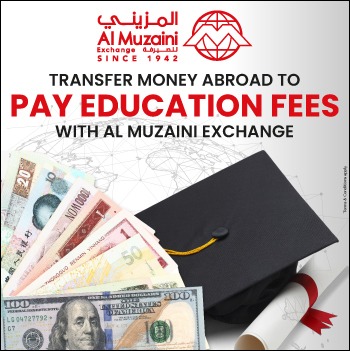Kuwait is a reliable partner and a strategic bridge between Europe and the GCC: Bulgarian Deputy Minister
Given its strategic location, investment capabilities, and long-term development strategy, Kuwait plays a vital role and Sophia seeks to establish enduring partnerships founded on innovation, economic diversification, and technological and industrial integration

The Deputy Minister of Economy and Industry of the Republic of Bulgaria, Doncho Barbalov, said Kuwait represents a reliable partner with a forward-looking vision in the path of cooperation between his country and the Gulf region.
He added, Bulgaria’s participation in the Ninth Gulf-European Business Forum, hosted by Kuwait, reflects Sofia’s strong commitment to building sustainable and mutually beneficial economic relations with the Gulf states.
Barbalov said that Kuwait plays a vital role in building the economic bridge between Europe and the Gulf, given its strategic location, investment capabilities, and long-term development strategy. He emphasized that Bulgaria seeks to establish enduring partnerships founded on innovation, economic diversification, and technological and industrial integration, reports Al-Rai daily.
Kuwait: A Strategic Gateway Between Europe and the Gulf
Barbalov explained that Bulgaria, as a member of the European Union, considers the Gulf states natural partners in areas such as energy transition, food security, digitalization, and joint investment.
He added that Bulgaria’s economic strengths — particularly in agriculture, technology, and food industries — open wide avenues for cooperation with Kuwait in alignment with the objectives of the “New Kuwait 2035” vision, which focuses on development, modernization, and sustainability.
“The Gulf-European Business Forum in Kuwait represents a crucial opportunity for Bulgaria — and for Europe more broadly — to deepen economic cooperation with the Gulf countries,” Barbalov said.
He described the forum as more than just a venue for networking. Rather, it serves as a strategic platform to coordinate shared economic priorities with Gulf partners, especially in economic diversification, green transformation, technological innovation, and sustainable industrial growth.
Bulgaria’s participation, he noted, is part of a wider European effort to reinforce cooperation in energy transition, food security, logistics, and industrial partnerships. He highlighted Bulgaria’s macroeconomic stability, strategic geographic position linking Europe, Asia, and the Middle East, and its access to both EU and Balkan markets as key advantages.
“Our presence in Kuwait reaffirms Bulgaria’s firm commitment to building lasting and mutually beneficial partnerships with the Gulf region,” he said, describing Kuwait as a trusted partner with a clear and ambitious vision for the future.
Opportunities in Agriculture, Food Industries, and Technology
Barbalov noted that Bulgaria has built solid expertise in agriculture, food processing, and technology, sectors that align closely with the development priorities of Gulf countries — particularly Kuwait, which places food security, digital transformation, and economic diversification among its top national objectives.
“Bulgaria can serve as a reliable source of high-quality food products within the European Union,” he said. “We possess fertile lands, advanced agricultural technologies, and a long history in organic farming and food processing.”
He highlighted Bulgaria’s exports of dairy products, grains, meat, honey, rose oil, and natural goods to over 100 countries, adding that the nation is ready to support Gulf markets with sustainable and secure food supply chains that meet European quality standards.
Barbalov also pointed to joint projects in food logistics, cold storage, and packaging technologies that would streamline the flow of goods between Bulgaria and the Gulf.
In the field of technology, he described Bulgaria as one of Europe’s fastest-growing digital economies, with a thriving ecosystem of companies specializing in artificial intelligence, cybersecurity, fintech, and automation.
“Our goal is not only trade but value-added partnerships — through joint investments in industrial zones, technology centers, and modern agricultural complexes,” Barbalov said.
Active Cooperation with the Gulf States
Barbalov revealed that Bulgaria has several projects and memoranda of understanding with Gulf countries across multiple sectors.
This year, Bulgaria signed a memorandum of understanding with Oman to enhance cooperation in the energy field, and a new agreement with Saudi Arabia in the area of economic collaboration is expected to be signed in 2026.
He added that Bulgaria supports the European Union’s efforts to forge strategic partnership agreements with Gulf Cooperation Council (GCC) countries, aimed at strengthening the EU’s position as a long-term partner in the region.
“We want these memoranda to move beyond formalities and translate into tangible partnerships, investment flows, and knowledge exchange,” he said.
Building a Lasting Economic Bridge
Barbalov expressed his belief that the Gulf-European Business Forum should evolve into a permanent platform with measurable outcomes.
“In a world facing supply chain disruptions, energy transitions, food security pressures, and accelerating digital transformation, we need a practical mechanism that connects Gulf capital with access to European markets, technologies, and standards,” he said.
He praised Kuwait’s strategic location, investment policies, and development vision, noting that they position the country as an ideal link between the Gulf and Europe.
“Our vision is clear: to make the bridge between Europe and the Gulf a tangible economic reality — one that functions and endures despite global challenges.”
Kuwait: A Strategic Economic Ally
Barbalov stressed that economic and investment relations between Bulgaria and Kuwait are built on mutual respect and shared interests in stability and development.
However, he acknowledged that current trade volumes do not yet reflect the full potential between the two nations.
“Bulgaria views Kuwait as a strategic economic ally in the Gulf region,” he concluded.
“The next phase should focus on creating shared economic value, expanding mutual investments, and aligning our efforts toward sustainable growth that links Bulgaria’s industrial modernization with Kuwait’s Vision 2035.”












